1. Google Keyword Planner
This free tool is key for finding keyword opportunities. It provides data on search volume, competition and provides estimates for ad campaigns, making it an excellent starting point for keyword research.
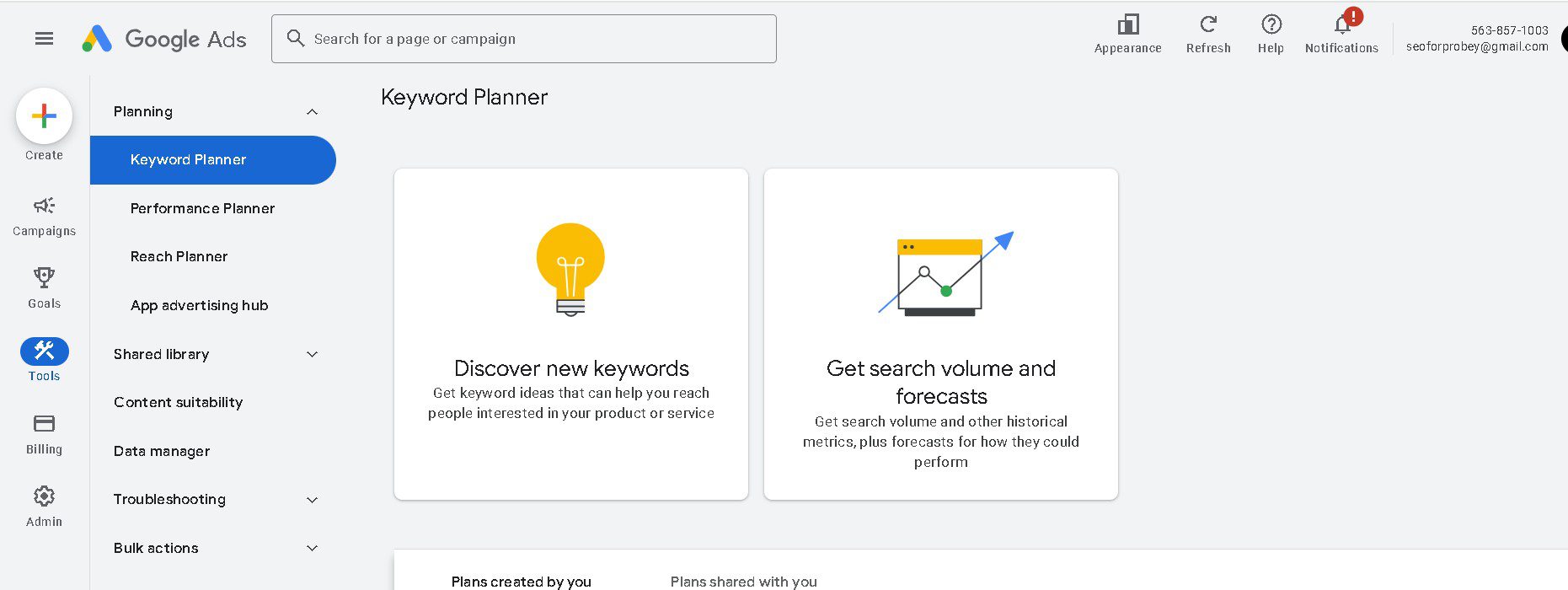
Best Feature: Direct integration with Google Ads ensures accurate keyword insights for your SEO tools strategy.
2. Ahrefs Keyword Explorer
Ahrefs provides complete keyword data, including search volume, keyword difficulty, and click-through rates (CTR). It gives advanced filtering options, helping you arrange keywords based on your goals.
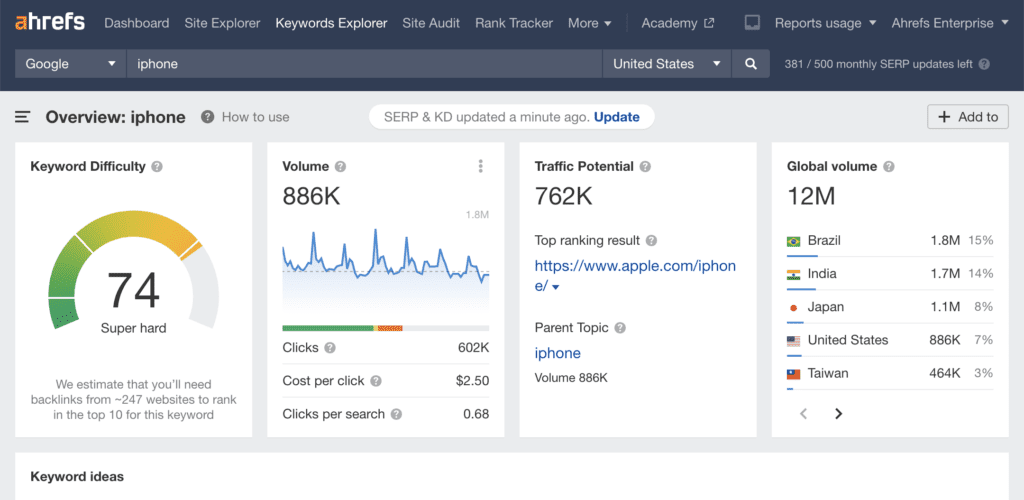
Best Feature: Advanced keyword difficulty metrics and competitive data, making it one of the most powerful SEO tools for keyword research.
3. SEMrush Keyword Magic Tool
SEMrush’s tools are excellent in identifying keyword opportunities, providing a broad list of suggestions along with search volume, keyword difficulty, and competition data. It also helps in finding long-tail keywords for better targeting.
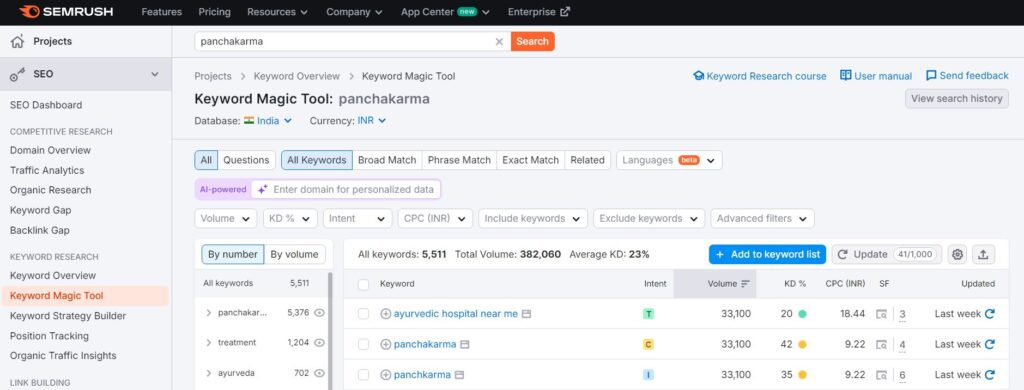
Best Feature: An interface with detailed keyword lists based on seed terms, further making it as one of the top SEO tools.
4. Yoast SEO (WordPress Plugin)
For WordPress users, Yoast SEO is a must-have. It provides real-time analysis of your content’s SEO and readability, helping you optimize each post with ease.
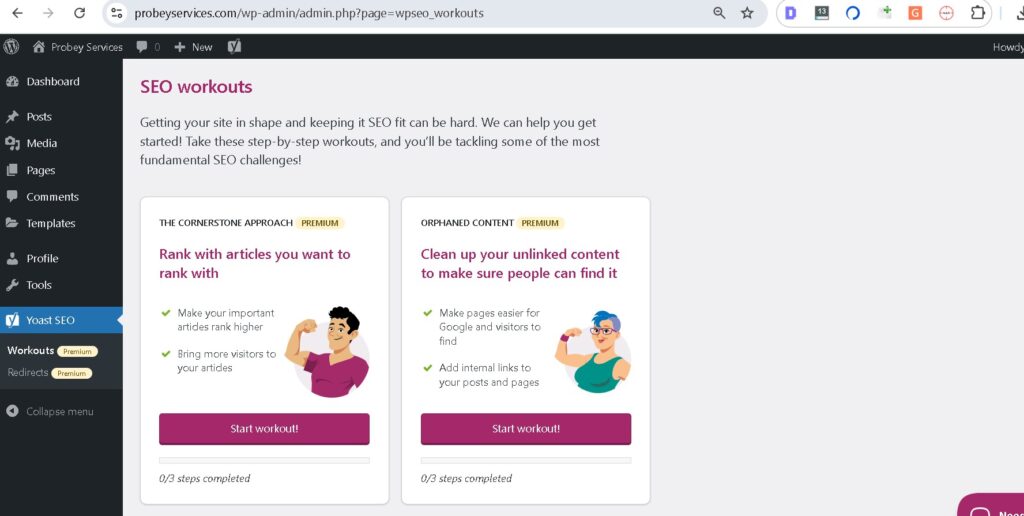
Best Feature: Real-time keyword optimization and readability checks, making Yoast one of the essential on-page SEO tools.
5. Surfer SEO
Surfer SEO analyzes the top-ranking pages for a specific keyword and gives you data-driven recommendations for improving your content. It calculates factors like keyword density, meta tags, and content length.

Best Feature: AI-driven content optimization suggestions based on real-time analysis of top competitors, positioning it as one of the best on-page SEO tools available.
6. Screaming Frog SEO Spider (On Page SEO Tool)
This tool is excellent for technical audits, but it also great in on-page SEO by helping you identify missing or duplicate metadata, broken links, and thin content.

Best Feature: The ability to crawl your entire site to audit on-page SEO issues in real time, making it one of the most versatile SEO tools.
7. Google Search Console
A free tool that allows you to monitor how Google indexes your site. You can track keyword rankings, identify crawl errors, and get recommendations for improving mobile usability.
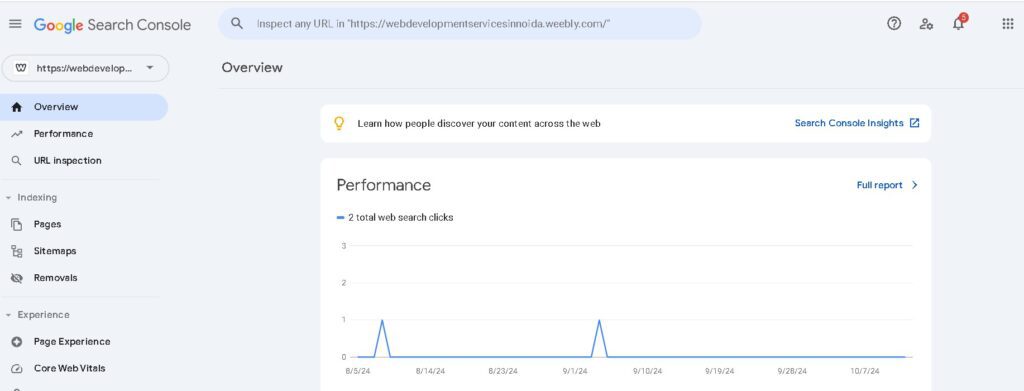
Best Feature: Detailed insights into indexing and site performance, making it a must use technical SEO tool.
8. Google Lighthouse
Google Lighthouse is an open-source tool used to improve the performance, accessibility, SEO, and progressive web app capabilities of your website.
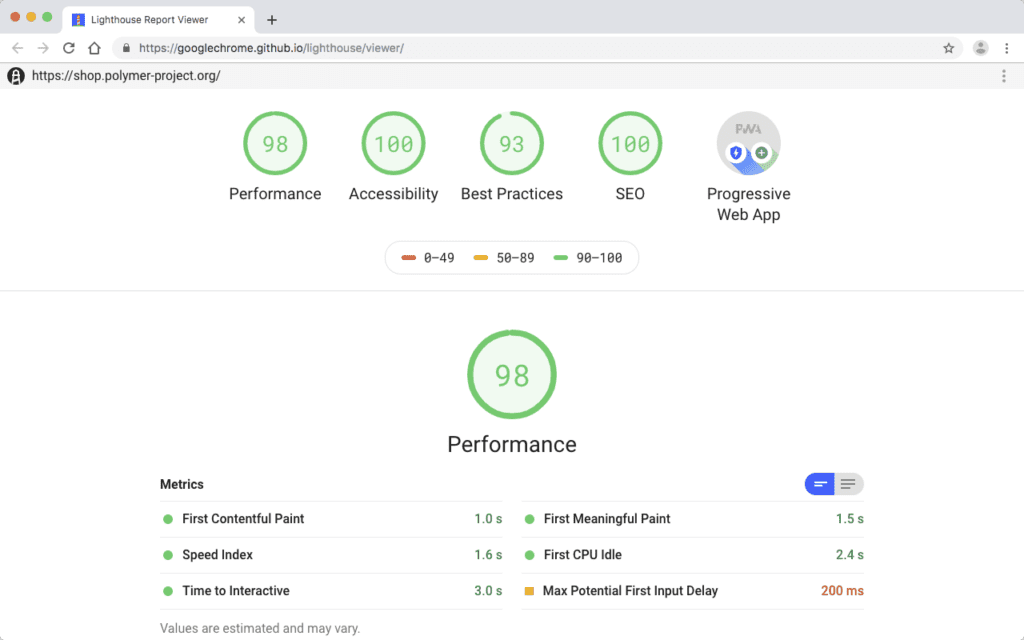
Best Feature: Provides detailed reports on a website’s SEO and user experience metrics like speed and accessibility, solidifying its role as a must-have technical SEO tool.
9. Screaming Frog SEO Spider ( For Technical SEO )
In addition to its on-page features, Screaming Frog helps with technical audits by finding broken links, crawl issues, duplicate content, and missing alt tags.
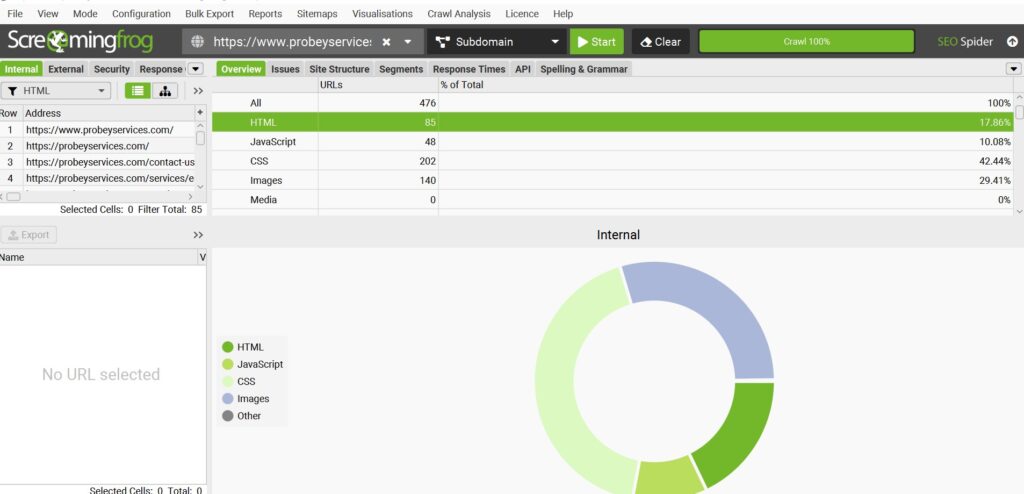
Best Feature: Ability to crawl up to 500 URLs for free, ideal for medium-sized sites and proving it as a top technical SEO tool.
10. Ahrefs Site Explorer
Ahrefs is best in competitive analysis, providing detailed insights into a competitor’s backlinks, keyword rankings, and traffic sources. It also shows which content is performing best for your competitors.
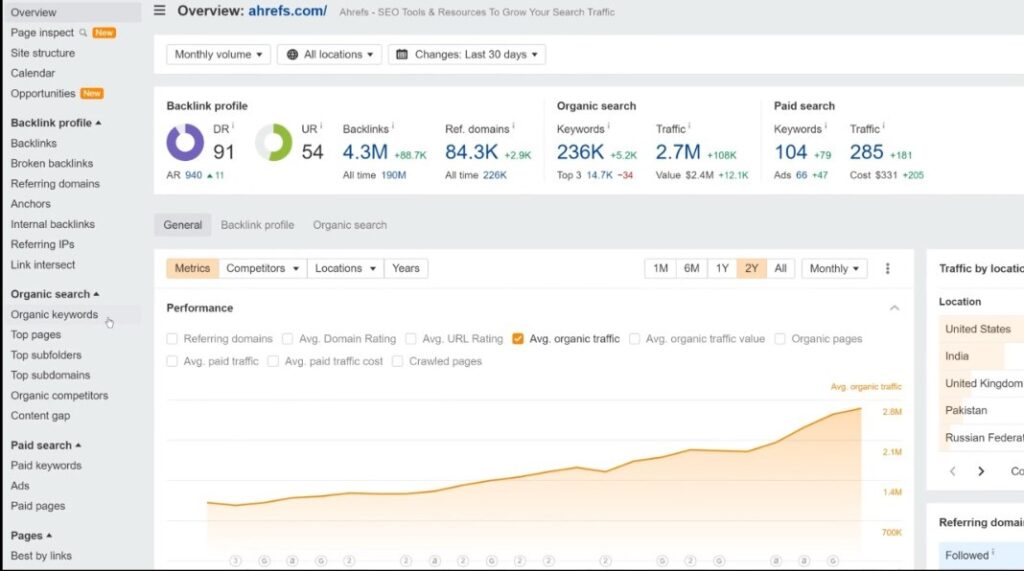
Best Feature: Deep backlink analysis, helping you see what brings traffic to competitors, making it one of the top SEO tools for competitive analysis.
11. SEMrush Competitive Research Tool
SEMrush provides an all-in-one platform for observing competitors’ keyword rankings, traffic data, and content strategies. It even allows you to track their paid search campaigns.
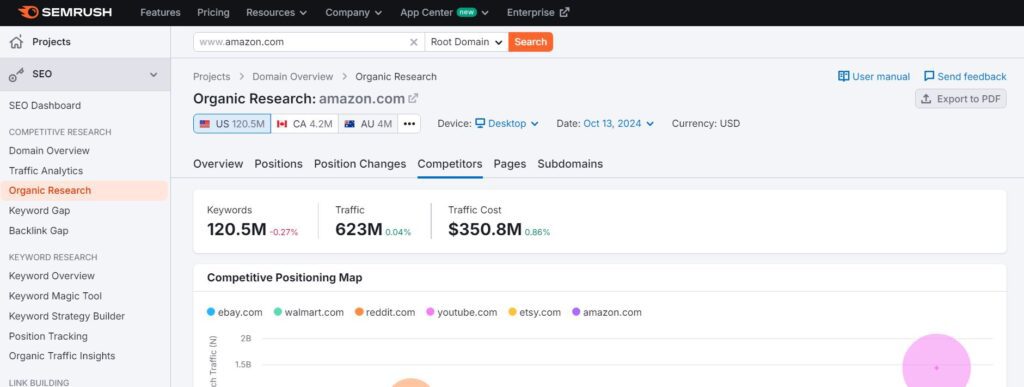
Best Feature: Detailed reports on competitor traffic, keyword rankings, and backlink profiles, putting SEMrush among the best competitive analysis SEO tools.
12. Moz Pro
Moz’s tools provide competitive research with features like Link Explorer, which helps you analyze a competitor’s link profile, and Keyword Explorer, which compares keyword strategies.
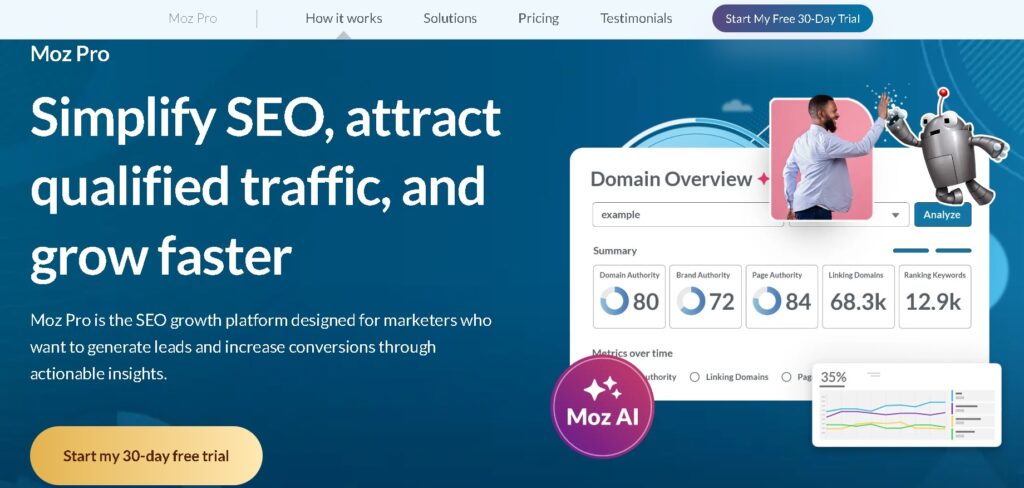
Best Feature: Easy-to-understand metrics like Domain Authority (DA) to measure the strength of competitors’ websites, making Moz one of the go-to competitive analysis SEO tools.
13. Majestic SEO
Majestic is one of the best tools for tracking backlinks, providing metrics like Trust Flow and Citation Flow to measure the quality of inbound links to your site.
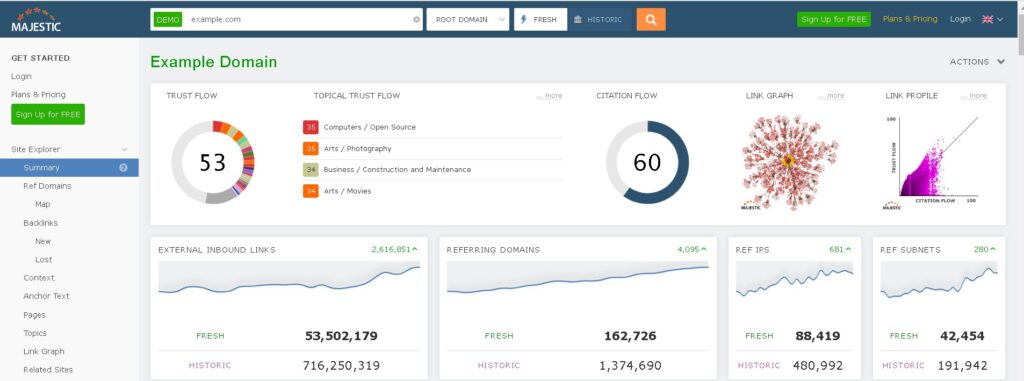
Best Feature: Visualization tools like Link Graph, which show how different backlinks are connected, making it one of the top link-building SEO tools.
14. Ahrefs Backlink Checker
Ahrefs is known for having one of the most extensive backlink databases. You can track new backlinks, identify lost links, and check your competitors’ backlink profiles.
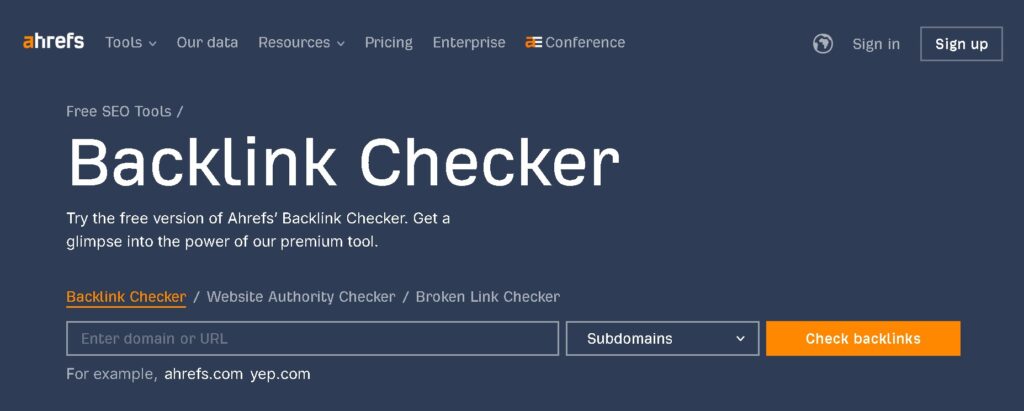
Best Feature: The ability to track your own and your competitors’ backlinks with daily updates, making it a very important SEO tool for link-building.
15. BuzzStream
BuzzStream isn’t just a tool for link tracking—it helps you with outreach and link-building campaigns. You can find potential link partners, send personalized emails, and track the progress of each campaign.
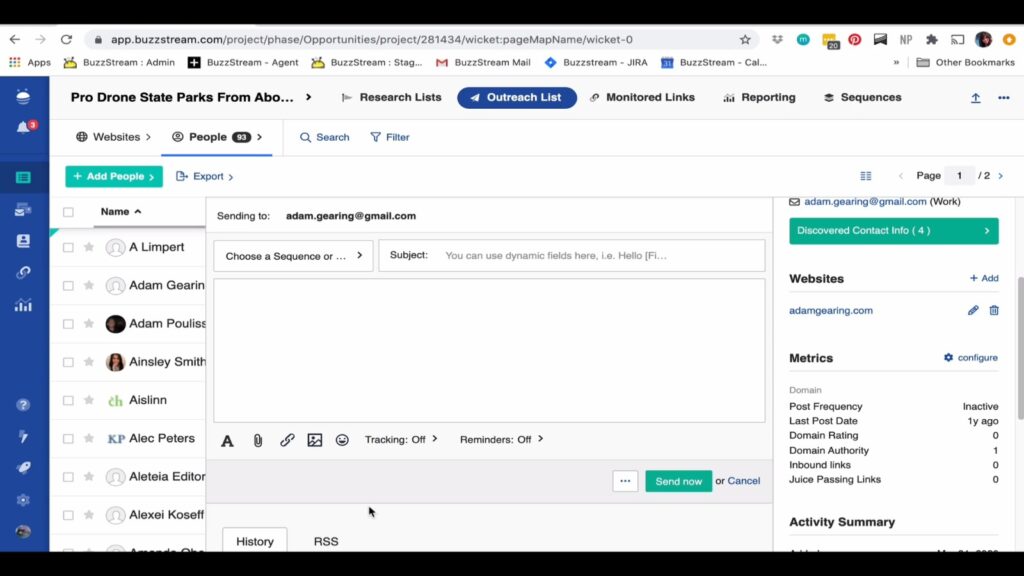
Best Feature: 360 outreach management, helping you stay organized during link-building campaigns and establishing it as a leading link-building SEO tool.
Final Thoght
Each of these 15 SEO tools has its own unique strengths, whether you’re focusing on keyword research, on-page optimization, technical audits, competitive analysis or link building. A combination of these SEO tools will give you a well-rounded approach to SEO, helping you achieve higher rankings and attract more organic traffic. Start with tools that fulfill your immediate needs and expand your toolkit as your SEO strategy grows.
For more helpful tips and strategies, explore our other blogs. They’re filled with insights to boost your website’s growth!



















